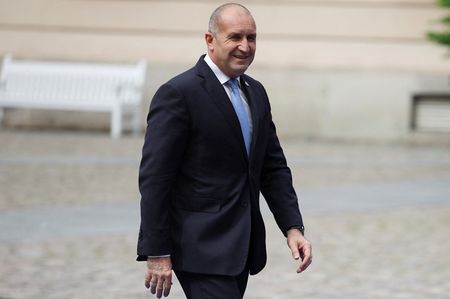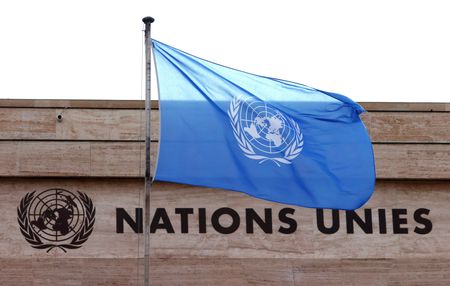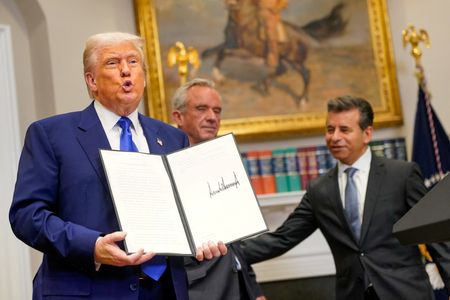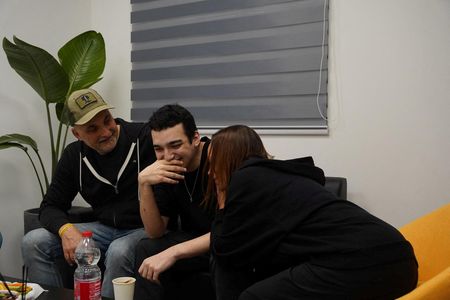(Reuters) -Bulgaria’s President Rumen Radev on Monday proposed a referendum on the country’s plans to adopt the euro next year, prompting criticism from the government, with one minister saying it was an attempt to “sabotage” the initiative.
The proposed referendum question “Do you agree to have Bulgaria adopt the single European currency euro in 2026?” will test the democracy and provide an opportunity to hear all the arguments for and against the monetary policy move, the BTA news agency reported Radev as saying in a statement.
The government plans to introduce the euro in January 2026 pending confirmation in June from the European Commission and the European Central Bank that it has fulfilled all the requirements for membership. The move has been delayed twice in previous years because of missed inflation targets.
Bulgarians are divided over the introduction of the euro, with many worrying that it will cause prices to surge, as was the case in Croatia when it adopted the euro in 2023.
Interior Minister Daniel Mitov said the call for a referendum was “a clear act of sabotage against the introduction of the euro in Bulgaria”, BTA reported.
Radev has expressed concerns over rising inflation, a lack of trust in the government and the absence of clear measures to protect purchasing power and economic competitiveness amid the planned currency transition.
He had urged a transparent discussion on the euro’s impact, stressing that the outcome of the referendum would provide clarity on the path forward for Bulgaria’s economic and monetary policy.
Bulgaria’s currency, the lev, has long been pegged to the euro and economists say the adoption of the single currency would bring more foreign investment in the country and would secure credit ratings upgrades that could cut its debt financing costs.
The new government, which took over in January following months of tough coalition talks, has reaffirmed a commitment to the single-currency bloc and in March approved a 2025 budget which targets a deficit of 3% of its economic output.
(Reporting by Daria Sito-Sucic; Editing by Sharon Singleton)











